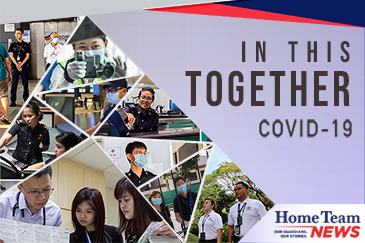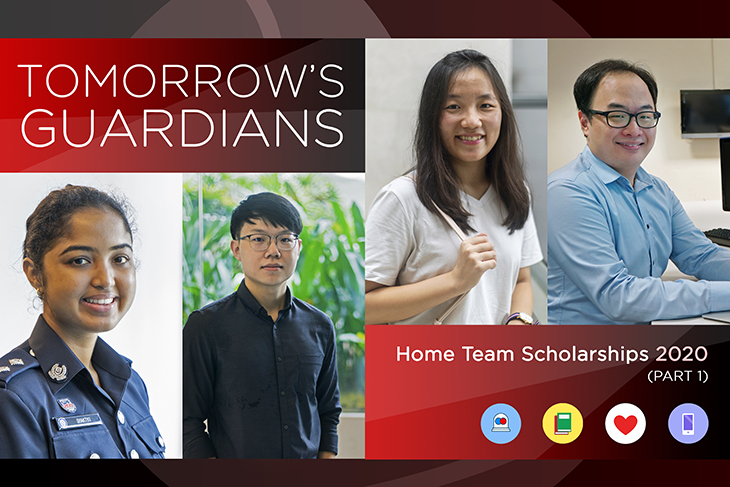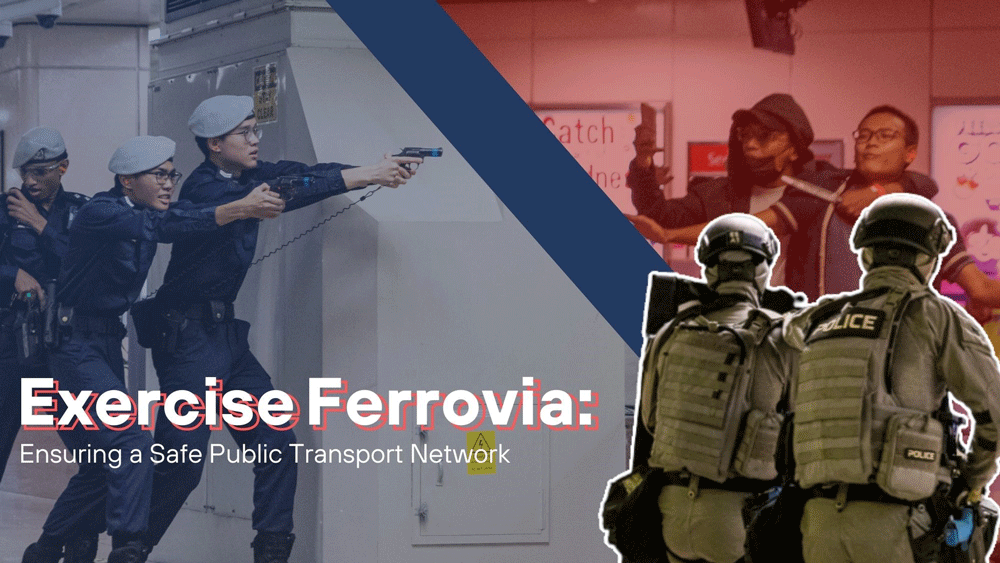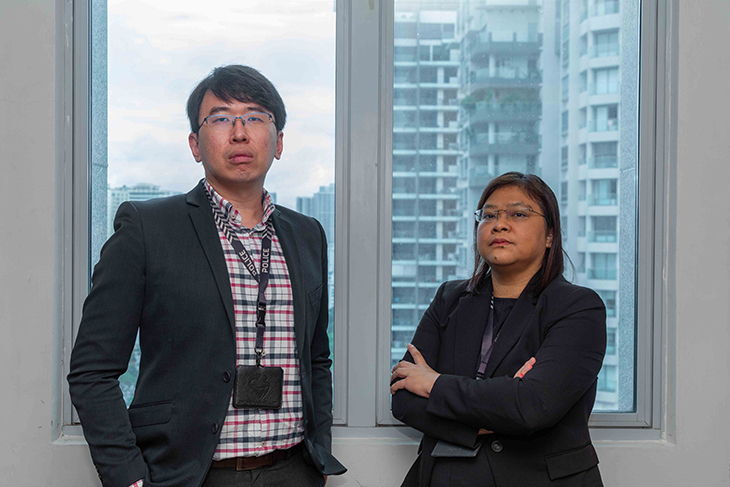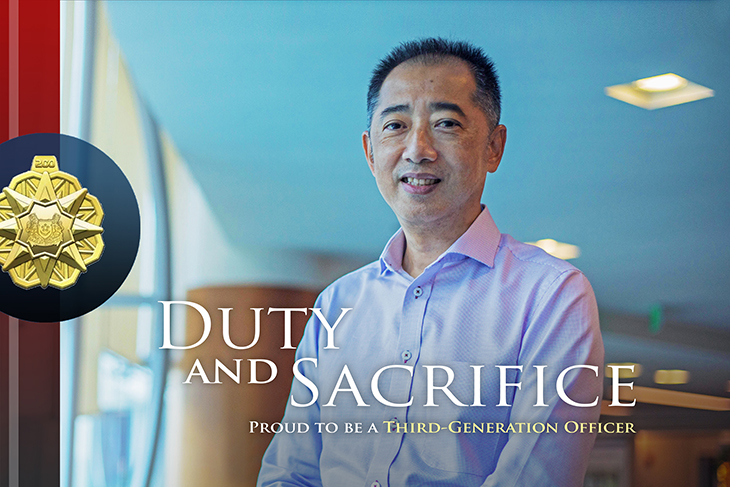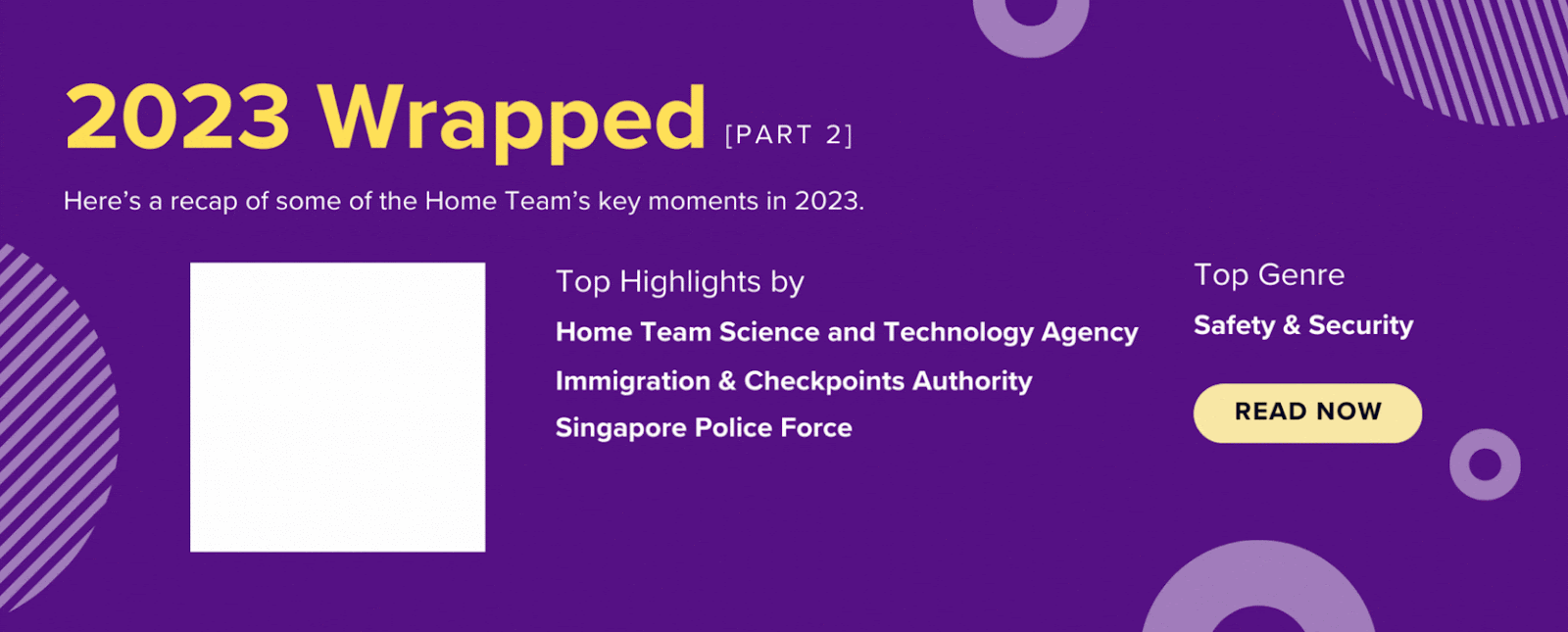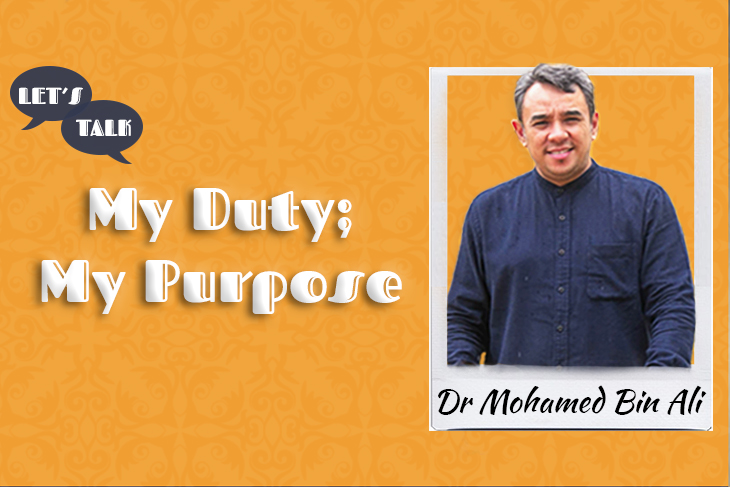
GRAPHIC: Joash Tan / PHOTOS: Dayana Yakob
According to the latest Singapore Terrorism Threat Report 2022, the terrorism threat to Singapore remains high.
Why is this so, and what can be done?
In this Q&A, Dr Mohamed Bin Ali, Vice-Chairman and counsellor with the
Religious Rehabilitation Group (RRG) – a voluntary organisation that counters radicalisation and extremism – for two decades addresses our questions.
Hi Dr Mohamed! Why did you first make the decision to become a religious counsellor for RRG?
I’d returned to Singapore after completing my bachelor’s degree in Islamic Law at Al-Azhar University in Egypt some time in December 2001.
Around that time, the
Internal Security Department (ISD) had commenced its security operations against the Singapore Jemaah Islamiyah (JI) cell, which was planning attacks at key installations around Singapore, and arrested some of the members.
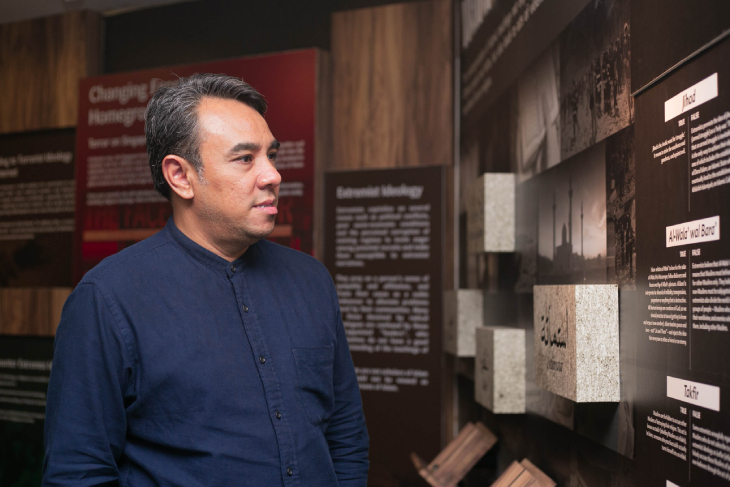
As a Singaporean, I was shocked. Our country has experienced racial riots and crises, but this was new. As a Muslim, I felt that these would-be perpetrators were misusing Islam to commit
jihad (a holy war undertaken by Muslims against unbelievers). That made me motivated to defend my religion, and at the same time, deter and correct those false teachings propagated by the extremist groups.
What has been RRG’s role in tackling terrorism and religious extremism in Singapore?
When the JI’s plot was revealed, the government consulted several well-respected senior religious leaders such as the late Ustaz Ahmad Sondhaji, the late Ustaz Syed Ahmad Semait, Ustaz Mohamed bin Rais, as well as Ustaz Mohamad Hasbi Hassan and my father Ustaz Ali Haji Mohamed, who are both currently RRG’s co-founders and co-chairmen, to talk to the JI detainees and find out about their ideologies and objectives.
After speaking with the JI detainees and realising that they had been led astray by erroneous Islamic teachings, the two
asatizah (religious teachers) were determined to do something to correct the detainees’ mindsets. They began to recruit young
asatizah to come onboard to counsel the detainees. At the time of the formation, there were only 11 counsellors. Today, we have 45 of them.
Although the old JI threat had been weeded out, new threats have been emerging and we need to play our part as a community to deter and engage with them. Over the years, the RRG continued to work with the authorities by providing religious counselling for detainees and supervisees referred to us by the ISD, their spouses, and conducting community outreach to help everyone to embrace pluralism and appreciate living in multi-racial and multi-religious Singapore.
How did your first few counselling sessions with the JI detainees go?
Before RRG members started their counselling sessions, they need to equip themselves with the knowledge on counselling psychology and counselling skills by attending a diploma programme run by the
Academy of Certified Counsellors.
This was important as we needed to learn how to build a rapport and engage the detainees before we could delve deeper into discussing the teachings of our faith.
At the start, not many of the JI detainees whom we met viewed us positively. Some saw us as stooges of the government.
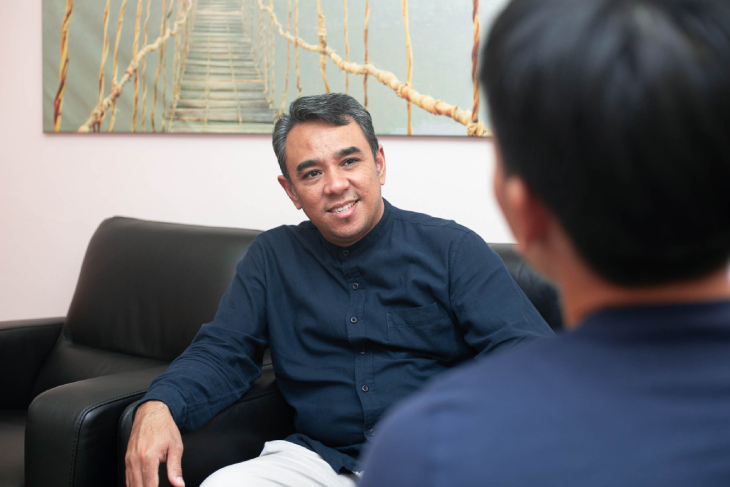
Personally, as a new counsellor back then, there was this sense of anxiety within me, not because of their violent ideologies, but that I was entering uncharted waters. This was something new, and in my journey of faith, I have never seen individuals or movements utilising Islam in such a twisted manner before.
I certainly wasn’t sure what they were going to say or how they were going to react to me. I was also concerned that I might not be able to successfully de-radicalise them.
Their indoctrinations run deep within them, which was appalling. But I persevered, knowing that as members of the same faith, I had the responsibility to correct the misconstrued notions of my peers.
Eventually, those efforts paid off. Today, majority of the JI members have been released. Most of them have reintegrated well into society and continue to maintain a close rapport with us.
Share with me your counselling and rehabilitation process.
There is no one-size-fits-all approach. Different detainees come with different issues, but our discussion usually revolve around the various ideologies.
We will first build a rapport with them, so that they will be comfortable with us. As we move along, we will then identify their issues and start to correct their religious misperceptions.
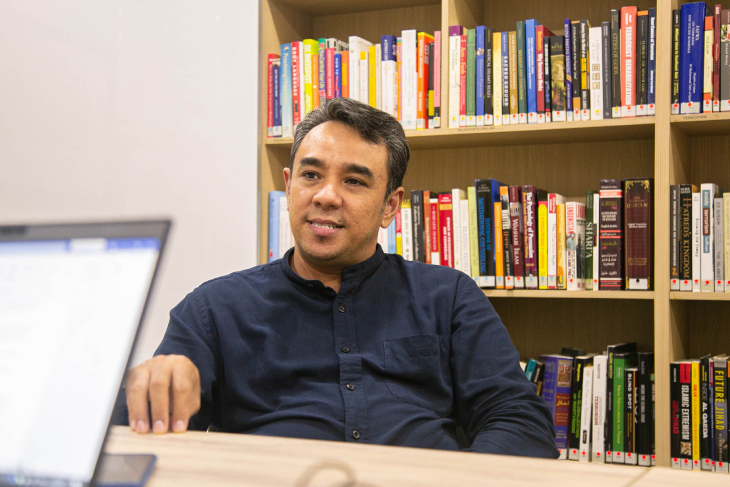
In the case of the JI detainees, we delved into the Islamic law and discussed misinterpreted concepts such as
‘Khilafah’ or caliphate (a typical form of Islamic system of governance) and
al-wala ‘wal bara’ (the concept of loyalty and disavowal).
For the self-radicalised and individuals including those influenced by the Islamic State in Iraq and Syria (ISIS) propaganda, we touched more on a variety of topics e.g. Islam and secularism, the use of justified violence, overseas conflicts affecting Muslims, and clarifying any doubts they may have about Islam and the Muslim community.
Most importantly, we highlight that Islam does not disallow Muslims to live with people of different faiths and communities. In fact, it promotes the peaceful co-existence of people of various faiths.
The newly released Singapore Terrorism Threat Report 2022 cautioned that the terrorism threat to Singapore remains high and self-radicalisation is still a primary concern. Why is this so?
The first case of self-radicalisation we encountered in Singapore – a former law graduate and not affiliated to JI or any extremist organisation – was in 2007.
While there is no single factor that leads to one getting radicalised, I’ve seen in my years of counselling that the most common trend is a lack of understanding towards the religion.
The proliferation of the Internet and social media, which has become an open university for hate speech, racism, anti-religious sentiments, far-right extremist and radical propaganda, sustain the terrorism threat that we face today.
Often sparked by a desire to become a better, practicing Muslim, they often stumble upon radical materials that lead them down the rabbit hole of negative ways to become a devout follower.
As a community partner, what is RRG’s continued strategy in deterring this threat?
The uncovering of the first self-radicalised individual led us to realise that we needed to come up with a new strategy to deal with this threat.
We’ve ramped up our efforts to educate Singaporeans both online and offline about the Syrian civil war in 2011 and ISIS' self-styled caliphate in 2014. We’ve also developed our own
helpline and a
mobile app for those who want to know more about extremism or how to help their loved ones who are on the verge of being radicalised. Members of the public can also make bookings to visit our centre to find out more these issues.
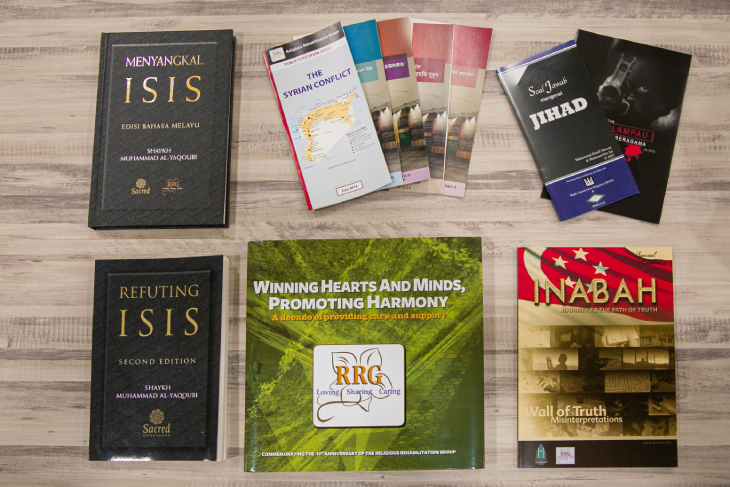
Outreach Efforts: Publications by the RRG to educate the public about extremism and terrorism.
Our work also didn’t stop when the COVID-19 pandemic struck us. We feared that people might be more vulnerable to being radicalised as they spent more time at home on the Internet. We continued to organise our own Zoom seminars and build rapport with different segments of the community such as, students from different institutions and foreign workers to invalidate those extremist ideas.
I must admit that it has been a difficult journey and we have not found a fool-proof remedy to this problem. However, we will continue to engage with the different groups in society to aggressively promote the idea of inter-religious harmony and peace.
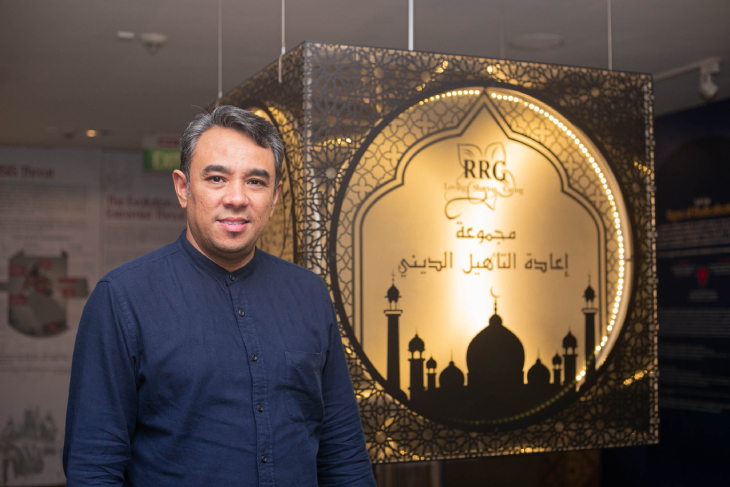
It’s been 20 years since you’ve been a counsellor with the RRG. Share with me your thoughts on your journey so far.
I’m definitely very happy when the JI detainees whom I first counselled were released, knowing that our efforts have borne fruit. It motivates me to keep doing what I do.
Our work, however, does not stop there. We continue to engage those released on or issued with Restriction Orders as well as those dealt with for self-radicalisation.
As a Muslim and a Singaporean, as long as the threat of extremism exists, I want to safeguard the community and continue the work my father has poured his life into. It is my duty and purpose to guide my peers back onto the right path.
Singapore Terrorism Threat Report 2022
The full Singapore Terrorism Threat Assessment Report is available for
download.
The terrorism threat to Singapore remains high. There is currently no specific intelligence of an imminent terrorist attack against Singapore. With the relaxation of pandemic restrictions and resumption of cross-border travel, terrorist elements may become more active and revisit plots that had been put on hold.
The threat from Islamist terrorist groups and their violent ideology persists. Their virtual network of supporters continues to disseminate propaganda, raise funds and plot attacks.
Public vigilance and preparedness are key components of our defence against terrorism. Anyone who knows or suspects that a person is radicalised should promptly contact the ISD Counter-Terrorism hotline 1800-2626-473 (1800-2626-ISD). Those interested to learn more about SGSecure, or sign up as an SGSecure Responder, may visit
sgsecure.gov.sg for more information.
For more on JI and ISD’s works on countering terrorism, read:
-
White Paper – The Jemaah Islamiyah Arrests and the Threat of Terrorism (2003)
-
20th Anniversary of ISD’s Operation Against Jemaah Islamiyah in Singapore Media Release (2021)
-
20th Anniversary of ISD’s Operation Against Jemaah Islamiyah in Singapore Full Report (2021)
-
Six Things You Should Know About ISD’s Operation Against JI in Singapore
-
Lifting the Lid: A Race Against Time by ISD
-
Six Qualities of an ISD Officer







